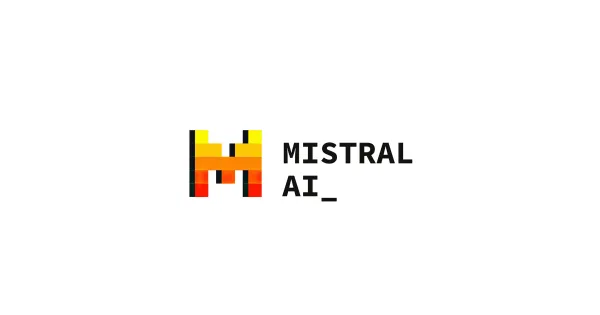Top Benefits of Hybrid Cloud for Business Resilience

Hybrid cloud solutions have emerged as a powerful tool for bolstering business resilience, offering a flexible and robust infrastructure that combines the benefits of both public and private clouds.
This article explores the concept of hybrid cloud solutions and their role in enhancing business robustness.
1) Agility and Scalability

Hybrid cloud solutions offer organizations the agility and scalability needed to thrive in today's dynamic business environments. By leveraging both public and private cloud resources, organizations can swiftly adapt to evolving demands, seamlessly scale their infrastructure, and efficiently deploy applications and services.
The flexibility inherent in a hybrid cloud environment empowers businesses to promptly respond to market shifts, meet customer demands, and seize emerging opportunities, enabling them to remain agile and competitive in the face of uncertainty.
With hybrid cloud, organizations can leverage the scalability and resources of public clouds for non-sensitive workloads while retaining control and security through private clouds or on-premises infrastructure for critical data and applications. This dynamic infrastructure allows businesses to adjust their resources based on changing needs, ensuring optimal performance and cost-efficiency.
By tapping into the agility and scalability of hybrid cloud solutions, organizations can effectively navigate the ever-changing business landscape and proactively respond to market dynamics, ensuring they stay ahead of the competition.
2) Cost-Efficiency and Optimization

Hybrid cloud solutions present organizations with cost-effective opportunities to optimize their IT infrastructure and resource allocation. By capitalizing on the scalability and cost advantages of public clouds for non-sensitive workloads, businesses can reduce infrastructure costs significantly.
At the same time, they can maintain control and security by utilizing private cloud or on-premises solutions for critical data and applications. The dynamic resource allocation capability of hybrid cloud enables organizations to align their costs with actual usage and demand, resulting in optimized spending while ensuring optimal performance and availability.
Here are the top hybrid cloud solutions that can be implemented in your business.
- Amazon Web Services (AWS): AWS offers a comprehensive suite of hybrid cloud solutions, including AWS Outposts, which allows organizations to run AWS infrastructure on-premises, and AWS Hybrid Cloud Storage, which enables seamless integration of on-premises and cloud storage environments.
- Microsoft Azure: Azure provides hybrid cloud solutions such as Azure Stack, which extends Azure services to on-premises environments, and Azure Arc, which enables organizations to manage resources across multiple clouds and on-premises infrastructure through a unified control plane.
- Google Cloud Platform (GCP): GCP offers hybrid cloud solutions like Anthos, which allows organizations to build, manage, and modernize applications across on-premises, Google Cloud, and other cloud environments, providing a consistent experience and operational model.
- IBM Cloud: IBM Cloud provides hybrid cloud solutions, including IBM Cloud Private, which allows organizations to deploy and manage cloud-native applications on-premises, and IBM Cloud Satellite, which extends the IBM Cloud services to any environment, including on-premises and edge locations.
- Oracle Cloud: Oracle Hybrid Cloud combines Oracle Cloud services with on-premises infrastructure, enabling organizations to integrate public cloud and private infrastructure. Oracle Hybrid Cloud supports application deployment and management across on-premises and cloud environments, ensuring a seamless experience for IT operations.
With hybrid cloud, organizations can achieve a balance between cost-efficiency and control over sensitive data and applications. By strategically leveraging the cost benefits of public cloud services and the security of private cloud or on-premises infrastructure, businesses can allocate resources intelligently, reducing unnecessary expenses and optimizing their IT budgets. The ability to scale resources up or down based on fluctuating demand allows organizations to align their costs closely with actual requirements, ensuring they have the necessary resources available when needed without overspending on unused capacity.
Overall, hybrid cloud solutions enable organizations to achieve optimal cost optimization while ensuring the performance, security, and availability of their critical workloads.
3) Data Security and Compliance

Hybrid cloud solutions play a pivotal role in addressing data security and compliance concerns for organizations. By offering greater control over sensitive data, businesses can choose to store critical information on private cloud or on-premises infrastructure, which typically provide enhanced security measures and regulatory compliance capabilities.
This approach allows organizations to maintain a higher level of control over their most sensitive data, ensuring it remains protected and meets the necessary compliance standards.
Simultaneously, non-sensitive data and applications can take advantage of the agility and cost benefits offered by public cloud services. By utilizing the public cloud for non-sensitive workloads, organizations can leverage its scalability, flexibility, and cost-effectiveness without compromising on security or compliance requirements.
The hybrid cloud approach provides a balanced solution where organizations can effectively manage both sensitive and non-sensitive data, ensuring that data protection and compliance needs are met while taking advantage of the inherent benefits of cloud technology.
In this way, hybrid cloud solutions empower organizations to strike a balance between security, compliance, and agility. By leveraging private cloud or on-premises infrastructure for sensitive data and public cloud services for non-sensitive workloads, organizations can optimize their data management strategies while meeting regulatory requirements.
The hybrid cloud model ensures that organizations can navigate the complexities of data security and compliance without sacrificing the benefits offered by cloud technology.
4) Business Continuity and Disaster Recovery

Hybrid cloud solutions are instrumental in establishing robust business continuity and disaster recovery capabilities for organizations. By harnessing the power of both public and private cloud resources, businesses can create redundant copies and backups of critical data and applications across multiple geographical locations. This redundancy ensures that even in the face of unexpected disruptions or disasters, organizations can swiftly recover and resume operations without significant downtime or data loss.
The flexibility offered by hybrid cloud enables organizations to implement comprehensive disaster recovery strategies tailored to their specific needs, ensuring the resilience of their essential business operations.
With hybrid cloud, organizations can leverage the inherent scalability and geographic diversity of public cloud services while maintaining control and security through private cloud or on-premises infrastructure. This combination allows for the seamless replication and synchronization of data and applications, providing robust protection against potential system failures or outages. By distributing workloads across multiple cloud environments, organizations can ensure high availability and fault tolerance, reducing the impact of any single point of failure.
Hybrid cloud solutions provide the necessary infrastructure and tools to enable organizations to implement effective disaster recovery plans, ensuring the continuity of critical business processes and minimizing the potential financial and reputational risks associated with downtime or data loss.
Final Thoughts
In an era of constant change and increasing demands for business resilience, hybrid cloud solutions offer organizations the ability to adapt, scale, and secure their operations effectively.
By combining the benefits of public and private clouds, organizations can achieve agility, scalability, cost-efficiency, and data security, ensuring uninterrupted operations and a competitive edge.
Embracing hybrid cloud solutions empowers businesses to navigate disruptions, seize opportunities, and thrive in an ever-evolving digital landscape.





